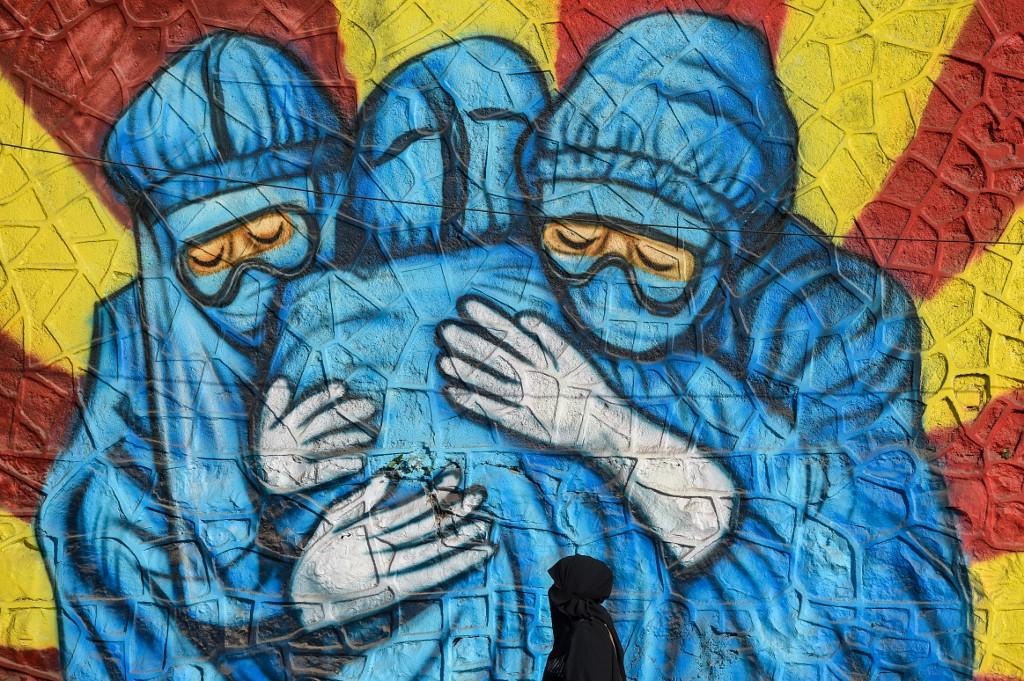WHO urges rich countries to pay up for Covid plan
WHO says the rapid cash injection into its Access to Covid Tools Accelerator could finish off Covid as a global health emergency this year.
Just In
The World Health Organization (WHO) urged rich countries Wednesday to pay their fair share of the money needed for its plan to conquer Covid-19 by urgently contributing US$16 billion.
WHO said the rapid cash injection into its Access to Covid Tools Accelerator could finish off Covid as a global health emergency this year.
The WHO-led ACT-A is aimed at developing, producing, procuring and distributing tools to tackle the pandemic: namely vaccines, tests, treatments and personal protective equipment.
ACT-A gave birth to the Covax facility, designed to ensure poorer countries could access eventual vaccines, correctly predicting that richer nations would hog doses.
Covax delivered its billionth vaccine dose in mid-January.
ACT-A needed US$23.4 billion for its programme for the October 2021-September 2022 period, but only US$800 million has been raised so far.
The scheme therefore wants US$16 billion up front from wealthy nations “to close the immediate financing gap”, with the rest to be self-funded by middle-income countries.
Omicron impetus
WHO chief Tedros Adhanom Ghebreyesus said the rapid spread of the Omicron variant made it all the more urgent to ensure tests, treatments and vaccines were distributed equitably.
“Wherever you live, Covid-19 is not finished with us,” he said.
“Science gave us the tools to fight Covid-19; if they are shared globally in solidarity, we can end Covid-19 as a global health emergency this year.”
Just 0.4% of the 4.7 billion Covid tests administered globally during the pandemic have been used in low-income countries.
Meanwhile only 10% of people in those nations have received at least one vaccine dose.
WHO said the vast inequity was not only costing lives and hurting economies, it was also risking the emergence of new, more dangerous variants that could rob current tools of their effectiveness and set even highly-vaccinated populations back by many months.
UN secretary-general Antonio Guterres told the campaign launch that overcoming the pandemic was within reach this year, “but we need to act now”.
“If we want to ensure vaccinations for everyone to end this pandemic, we must first inject fairness into the system,” he said.
“Vaccine inequity is the biggest moral failure of our times and people and countries are paying the price.”
Ramaphosa call
ACT-A has come up with a new “fair share” financing model on how much each of the world’s wealthy countries should contribute, based on the size of their national economy and what they would gain from a faster recovery of the global economy.
South African President Cyril Ramaphosa, who co-chairs the ACT-A facilitation council, said inequitable access to Covid tools was simply prolonging the pandemic.
“I urge my fellow leaders to step up in solidarity, meet their fair shares, and help reclaim our lives from this virus,” he said.
Ramaphosa and his co-chair Norwegian Prime Minister Jonas Gahr Store have written to 55 of the wealthiest nations outlining their “fair share” and encouraging them to cough up.
The plan would require the US to contribute the most, at US$6 billion.
“Public health doesn’t end at our borders. All of us are at risk and all of us must respond to turn the tide. Let’s get this done,” said US Health Secretary Xavier Becerra.
Subscribe to our newsletter
To be updated with all the latest news and analyses daily.
